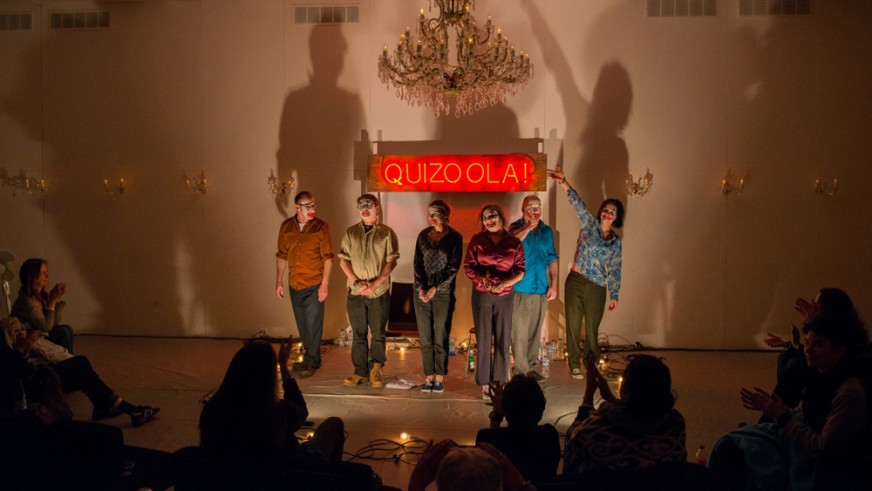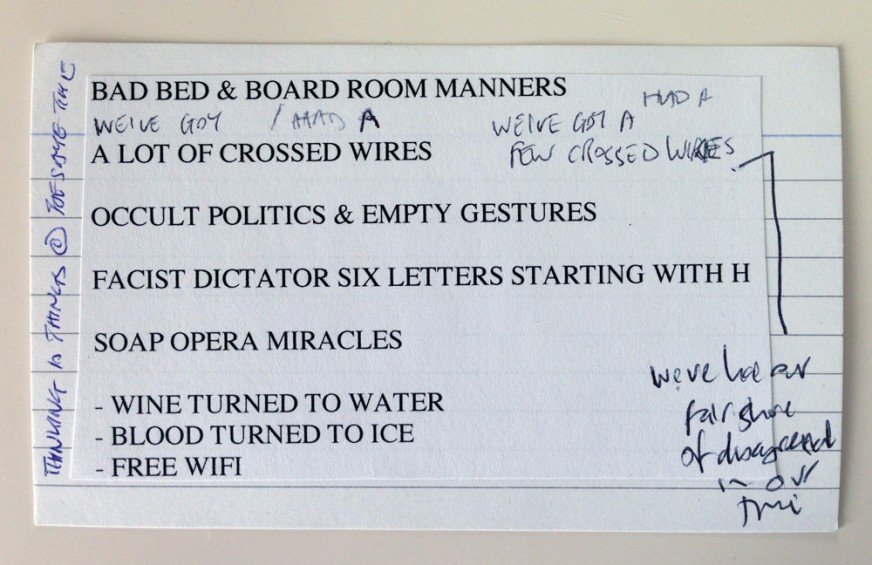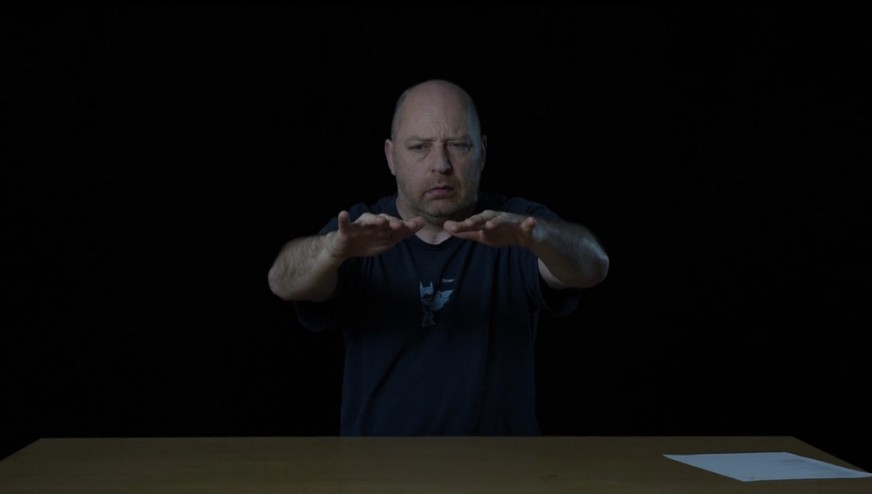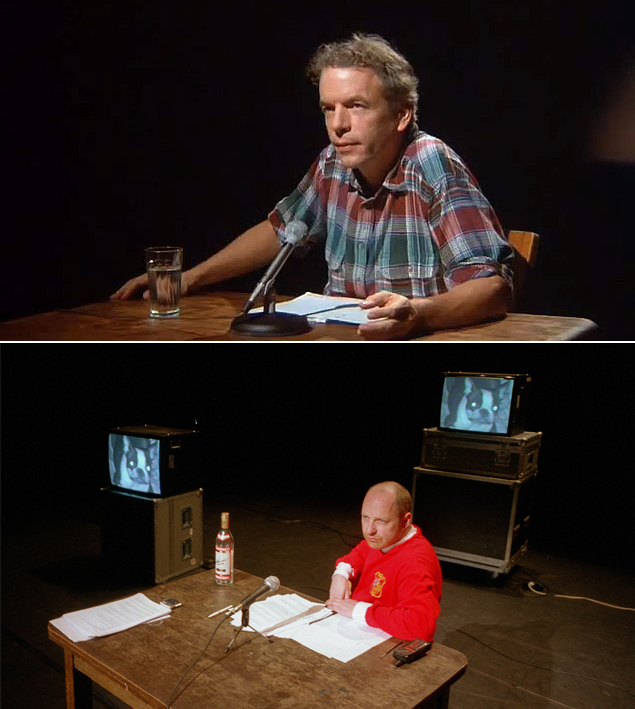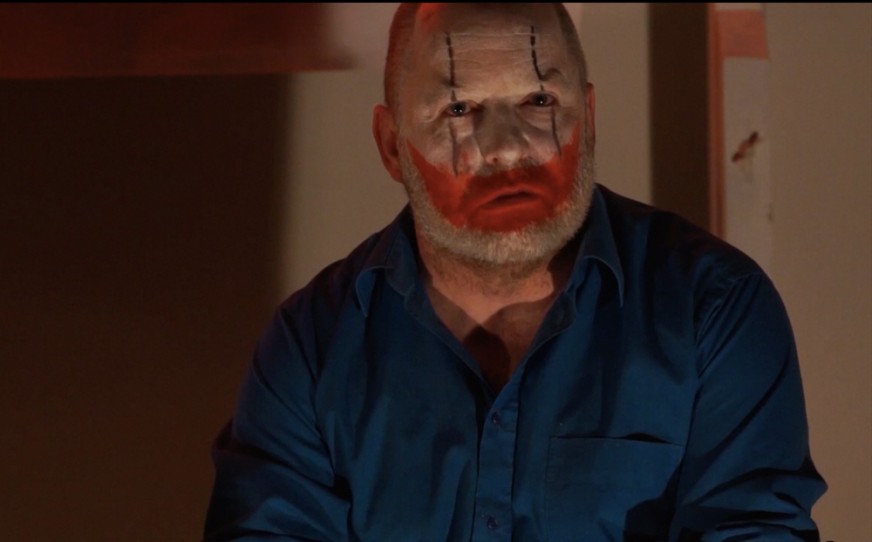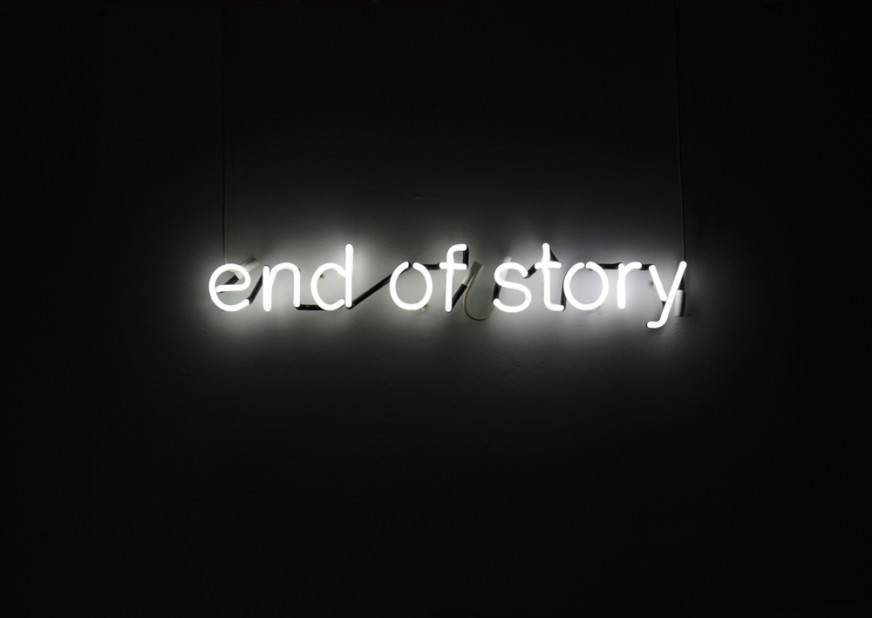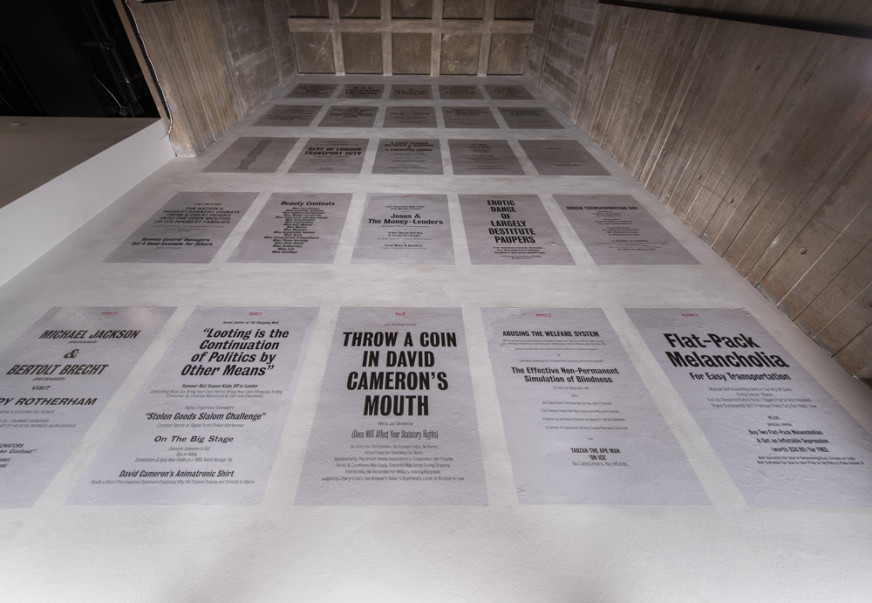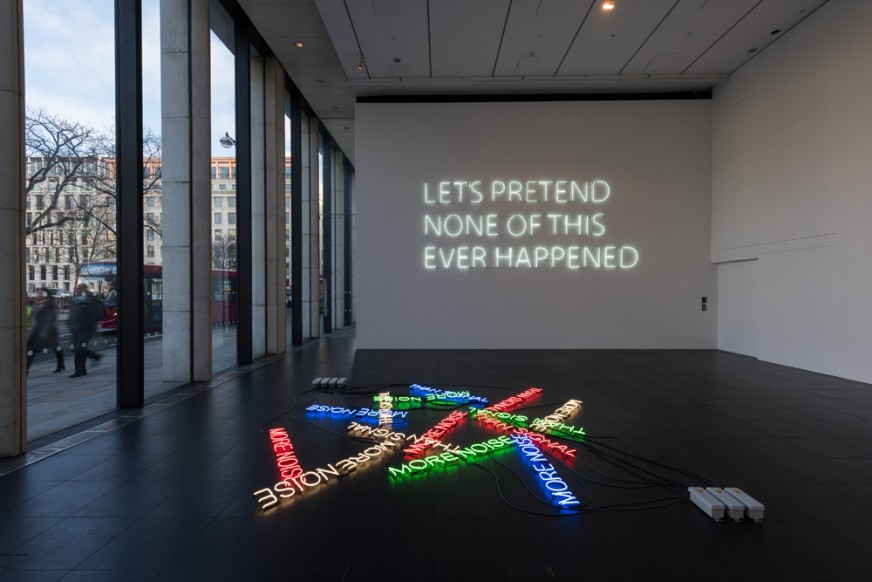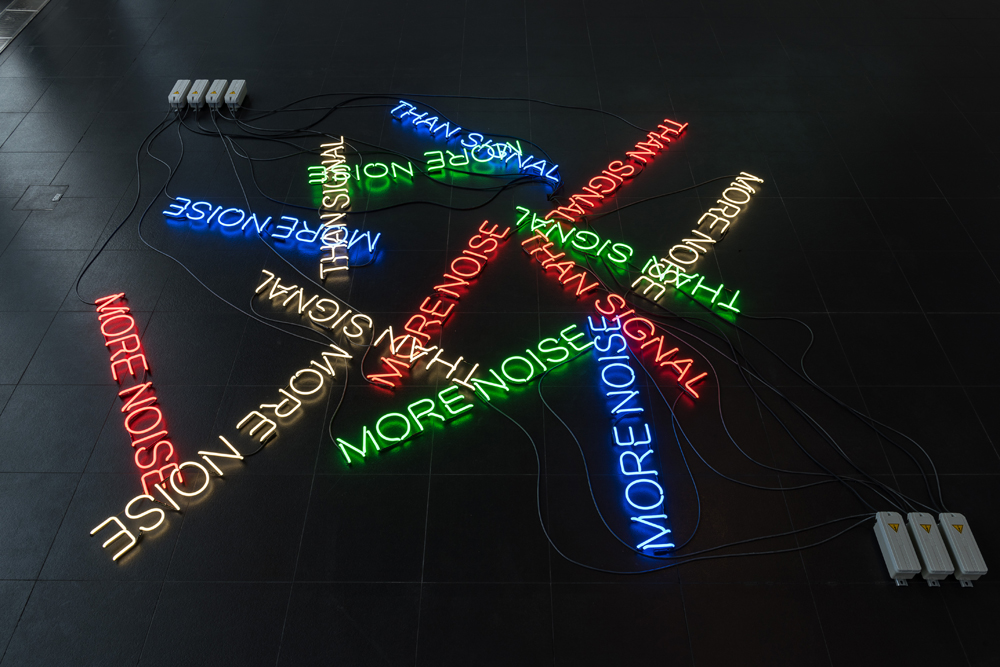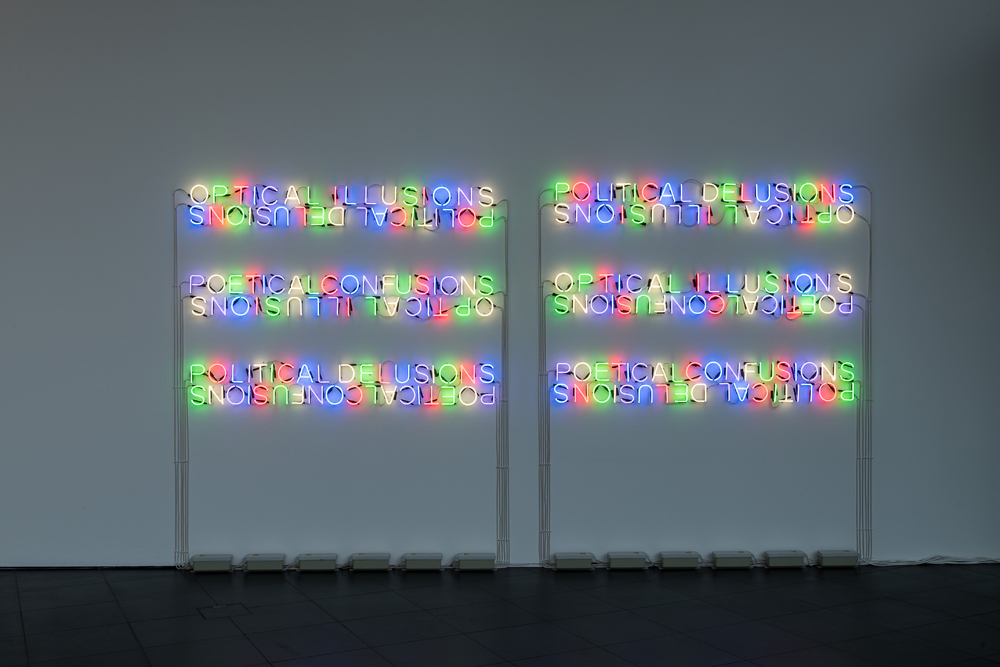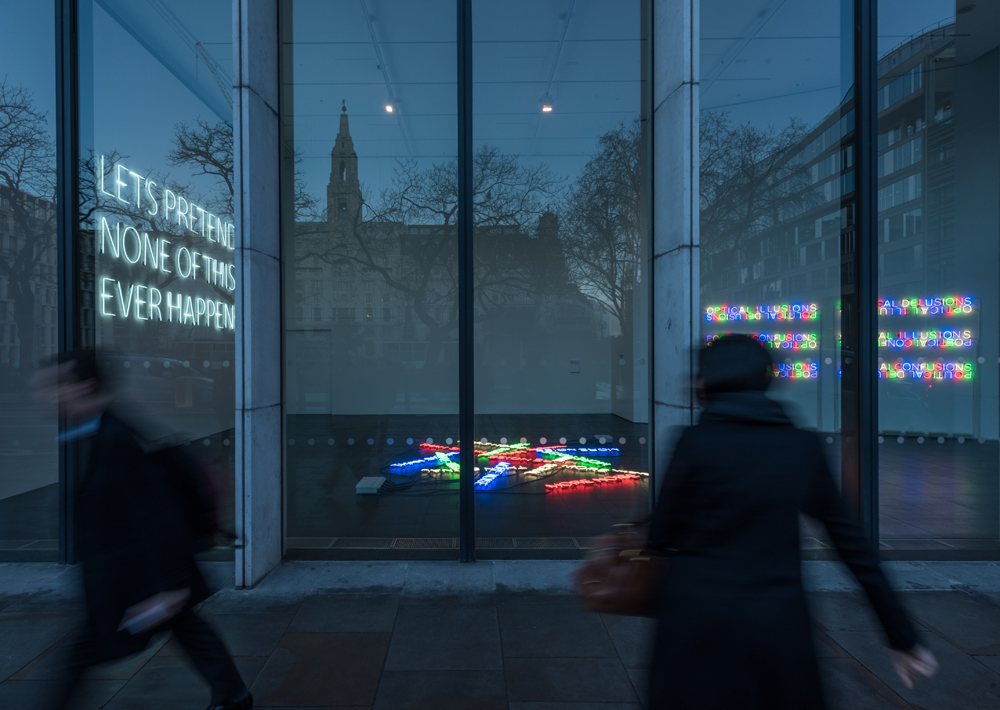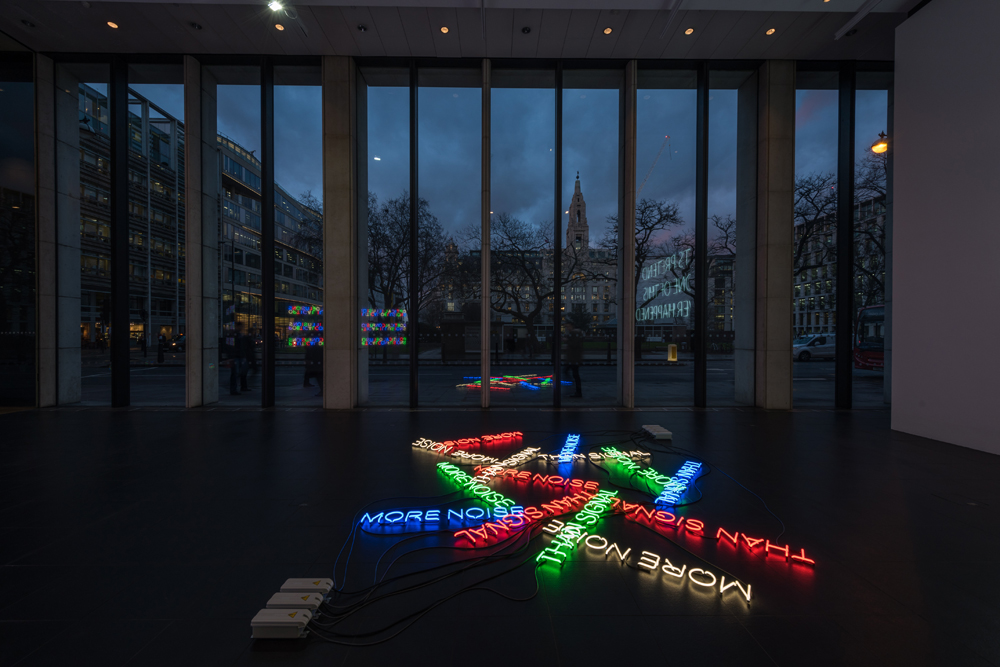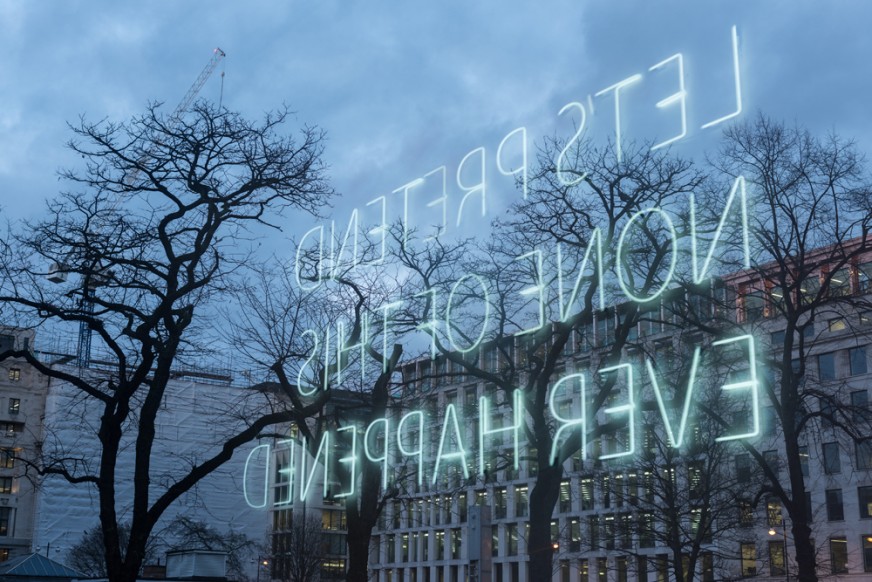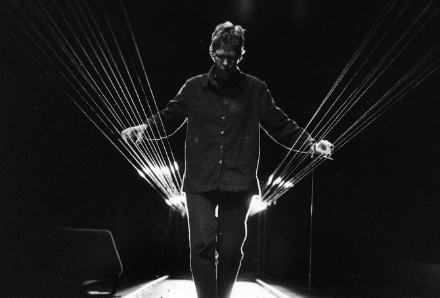Text below of my acceptance speech for the 2016 Spalding Gray Award.
What must be a long time ago, in England, when my colleagues in Forced Entertainment and I were first starting out to make performances we believed with a passion that the world we lived in, the new world that was coming into being around us, needed a new language, ‘a new grammar to unpick it’, as my friend the writer Claire MacDonald wrote at the time. I still think that’s true – because making theatre or performance is always at its best an act of re-making – re-purposing and re-inventing forms in order to better meet and speak into the times we are living in.
Part of how we kept ourselves thinking about that new language theatre needed was by engaging with the city we found ourselves in – the formerly industrial city of Sheffield, in the north of England – taking inspiration from people we met, from all kinds of ideas, things and feelings we encountered there, directly and indirectly.
Another way we kept ourselves focused on that idea of a new theatrical language at that time was to see the few experimental performances that came to Sheffield or nearby cities like Nottingham and Manchester. Seeing other work was both food and inspiration – it was also sometimes a kind of negative inspiration. We raged and ranted about things we hadn’t liked, all part of defining who we were and what we found important.
For the rest, this all being pre-internet, we relied not on youTube but on rumours and on the small number of books or magazines that covered performance to tell us what other people were up to in other parts of the country, and in other parts of the world. Information of this kind reached us by slow circuitous and erratic routes; we read reviews of performances that we had not seen, saw images of productions in other countries which we could only vaguely imagine, and occasionally, a VHS tape passed to us from someone or other – an actual performance.
It was in that kind of way that I first heard of Spalding Gray’s work, solo, and with the Wooster Group. I remember reading, in TDR I think, about Three Places in Rhode Island, the Wooster Group pieces based around Spalding’s life experience and texts, and I remember seeing images of those performances, puzzling over the black and white traces and descriptions of the making process. Later I’d read his first set of monologue texts published together in UK as Swimming to Cambodia and later still see the Jonathan Demme film of that performance as well as other performances and texts by Spalding.
Of the artists and performers whose faces I got to know from grainy TV documentaries watched on VHS video back in the mid 1980s I’ve been lucky enough to meet a few in the ensuing years and to consider some of them friends, as my work has brought me into the same rooms, festivals and other contexts in different parts of the world. Spalding Gray I never met and for one reason or another I never got to see him perform live. I’m sad about that. I would have liked to talk.
Spalding has stayed with me though as someone who both inspired and help clarify my own practice, a person that pursued his own approach to performance and in doing so opened doors towards that new language theatre needed in order to meet the times.
It means a lot to me to receive this award. I’m thrilled by it and thrilled to be able to put the money that comes with it towards supporting the new Forced Entertainment production Real Magic. Forced Entertainment has been lucky in recent years to have core support from the Arts Council in the UK but the production of projects is something that requires us to find international partners who can support the realisation of the work. The work of building up the ensemble, and developing the shared practice, collective understanding and skills the group has is something that’s only ever been possible through the support of partner organisations and venues in different parts of the world.
Forced Entertainment’s work can be deceptive. The home-made, lo-fi aesthetic, the second hand costumes and shanty town sets, people reading from long texts or sitting at tables doing Shakespeare with domestic objects, the subtle lighting changes that aren’t always noticed but which always make their difference to the work, the scratchy brutal collage form of some of the pieces and the minimalism we’ve pursued which somehow avoids the chic that minimalism can have – all of these can quite easily look offhand, disguising the precision, skill and consequent approach we have to the work.
Where in a lot of contemporary European and North American work at a certain scale you literally get to see the money on the stage – in flashy design, tech costume and other things, in Forced Entertainment’s work you often see the opposite. The stage looks bare, broken down even disreputable, whilst such financial resources we do have are invested in time – on studio time and working together, on making performance in the most dynamic and direct ways we can. Making a new theatre, to speak in new ways about the times we are living in, takes an extended time in the rehearsal room, developing the kinds of skills and approaches that are useful, trying things, improvising, arguing; time doing the kind of hands on studio work that really drives what we are doing along.
It takes time, and the support of the Spalding Gray Award – looked after by Kathleen Russo, Spalding’s widow; Performance Space 122 in New York; the Walker Art Center in Minneapolis; the Andy Warhol Museum in Pittsburgh; and On the Boards in Seattle – will help us greatly with that, joining support from the Arts Council of England, as well as the European partner venues and festivals that are also contributing to the new production. Thanks to everyone involved in the Award. It’s hugely appreciated.
Coming to a close now, but there are two things I want to add.
The first is to say that I’m well aware of the company I’m keeping in receiving this award. The connection to Spalding’s legacy is perhaps one of the things that has tuned me to other work coming out of the US – and it’s really an honour to be in a list that already includes such great makers and innovators as the previous recipients of this award – people like Young Jean Lee and Richard Maxwell are friends and very much fellow travellers in the contemporary performance scene whilst Radio Hole are legends that I have yet to catch up with. The only non-American I see on the list is Rabbih Mroue, who, again, as well as being a friend is someone whose work has challenged and inspired me on many occasions. I’m proud to be in such company.
The other thing I want to turn to now is our present context – to this season of my work, and especially my work with Forced Entertainment that has been brought here to the MCA in Chicago by Peter Taub and his team, with the support of the British Council, especially Salette Gressett whose enthusiasm has been really instrumental in making this all happen. I want to thank Salette and Peter, not just for the mini-festival of works that is being presented as of this evening with the first performance of The Notebook, which I made with Forced Entertainment, but also for hosting this reception. I also want to thank Deputy Consul General Martin Whalley for his opening remarks and for joining us in bringing this event together.
A presentation of four different works over a nine day period as we have here at the MCA in Chicago right now certainly takes some organising, resources and hard work, but I think it does something very valuable – allowing audiences to see the different facets of my work with Forced Entertainment and others, it also allows for a deeper contact and dialogue, which I am very happy and excited about. It’s a joy to me that the long running dialogue myself and colleagues have had with Matthew Goulish of the Chicago based performance group Every House Has A Door will find further expression in the Institute of Failure event next week and that my Forced Entertainment colleagues will be able to meet, in discussions, workshops and talks, other people from the performance scene here in Chicago. Michael Thomas from the Chicago group Lucky Pierre and I have planned to meet on at least two different occasions – once in New York I think, and once this week in Chicago – seems like it’s not meant to happen yet. But one day it will come!
Finally, thanks again for this award, amazing to me in so many ways. I hope we can make good use of it, and look forward to presenting the new work in the US. The on-going dialogue is important to us, keeping us strong, forward facing, experimenting. We will use the support in our work back in Sheffield, where in rehearsals we are still trying to make a new theatre, a new new theatre, which we need to speak into the troubled and violent times we are living through.
We need that, now, as much as ever.
Take care.
Tim Etchells.
